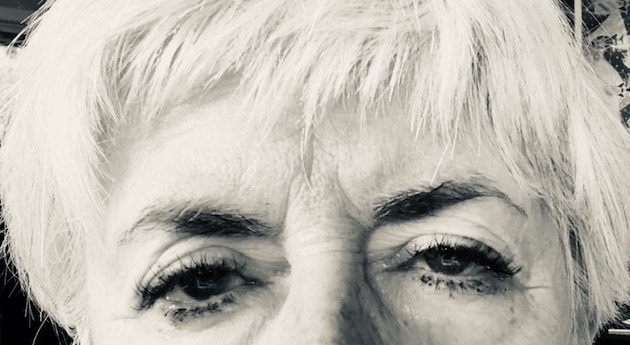Boy, am I tired. In fact, I’m tired-er than tired.
I just returned from a fabulous three-week trip to New Zealand with the Hearing Husband. The only downside was the trip home which involved three flights over 24 hours. And that kind of time and energy commitment is guaranteed to not only drain you of physical energy, but of the brain’s ability to do what it’s supposed to do. When I’m tired, I don’t think as clearly or focus as well as I do when my energy is its normal zippety-doo-dah self.
In spite of good hearing technology, my brain was mucking up my conversations. It started at 4:30am when it was time to go to the airport; I insisted to the nice front desk fellow that we were checking out of room 102. Luckily, the Hearing Husband overhead and corrected me. Room 102 was our previous hotel in New Zealand. At the busy Sydney airport, a transit stop on our flights home, I had trouble ordering a coffee because I couldn’t understand the server, even though she seemed to speak clearly, but she had an accent and the airport was vibrating with noise. There were no hearing issues on the 14-hour flight to Vancouver, because the Hearing Husband and I tried to sleep rather than speak, and I watched films with subtitling. I’m very good at imagining the sounds.
Ask almost any person with hearing loss and they will tell you (and if they don’t, I’m telling you now):
- It takes energy to hear.
- Energy drains when you’re focusing on hearing and speechreading and understanding for long periods of time. There’s even a term for this: auditory fatigue.
- Using hearing technology reduces the stress and energy commitment involved in listening and hearing.
- At the end of a long day, many people with hearing loss tear off their hearing aid(s) or cochlear implant sound processor for some peace and (guaranteed) quiet. Others hang in to the bitter end, aka bedtime.
We need energy to start our hearing-day and we may not have much left at the end it. In Chelle Wyatt’s article for hearinghealthmatters.org, she writes: Listening takes effort. We have to pull all the components together, including our hearing, to communicate properly. We must be able to understand language, generate an appropriate response and keep the conversation going back and forth. ‘Hearing’ people can do this while multitasking (washing the dishes, watching TV) but for people with hearing loss, listening requires more focus and effort, because we’re also visually decoding the message with speechreading and quickly trying to fill in blank spots in words and conversations.
When we avoid some activities such as social events, it’s often because we simply don’t have the energy or the focus needed to hear when playing cards with friends or going out for a restaurant dinner. Noisy environments sap even more of our mental strength, as we try to speechread and follow conversations in a contest that we are doomed to lose.
How do we deal with this? Classic advice to people with hearing loss has been to get sufficient sleep and be well rested, reduce stress, and to take breaks as needed in energy-sapping listening environments. To these general but not-always-achievable goals, let’s add:
- Choose positive communication environments with adequate light and a minimum of noise, when possible. If you know a restaurant is dark and noisy, simply don’t go there – choose a better venue.
- Limit dinners with friends/family to between two and six people, preferably seated at a round table for easier communication.
- Be open about your hearing loss needs – there is no substitute for this guideline. By being honest, you automatically reduce your listening efforts by sharing responsibility for good communication with the other person or people.
- It really does help to exercise your eyeballs to give them a break from so much staring. Here are four common ways to reduce eye strain that are taught in speechreading classes and are summarized in this article from Yoga International: palming, eyeball rolling, focus shifting and distance gazing.
Do you have anything more to add to this list? Let me know. In the meantime, as you can see by the above picture, my eyes need to close for a while so I can get rid of jet lag.







Take frequent breaks… anyone who knows me well knows that I’m apt to disappear for short periods of time. Auditory overload comes often to a lipreader, so there comes a point where I simply have to go off by myself to a place where there isn’t much to stimulate my senses. It’s a bit of a decompression break. And, as you say, there will come a point where recovery isn’t possible and you just have to call it day.
A few years ago I traveled to the place I grew up for the funeral of a close friend’s father. The day of the funeral started early and was an emotional and draining day. Congregating afterwards, at family member’s house, we all sat around outside talking with friends we hadn’t seen for long periods of time. As the evening dimmed, I wasn’t able to follow the conversation and everyone noticed. Because my friends are sensitive to my hearing loss, they took charge and moved the large group out to the barn in a well-lighted area. However, I continued to struggle because of the physically and emotionally exhausting day. I finally had to make my exit, explaining that while the move to better lighting was so much appreciated, I simply didn’t have the energy to concentrate any longer, and I had reached the point where tiredness trumps skill.